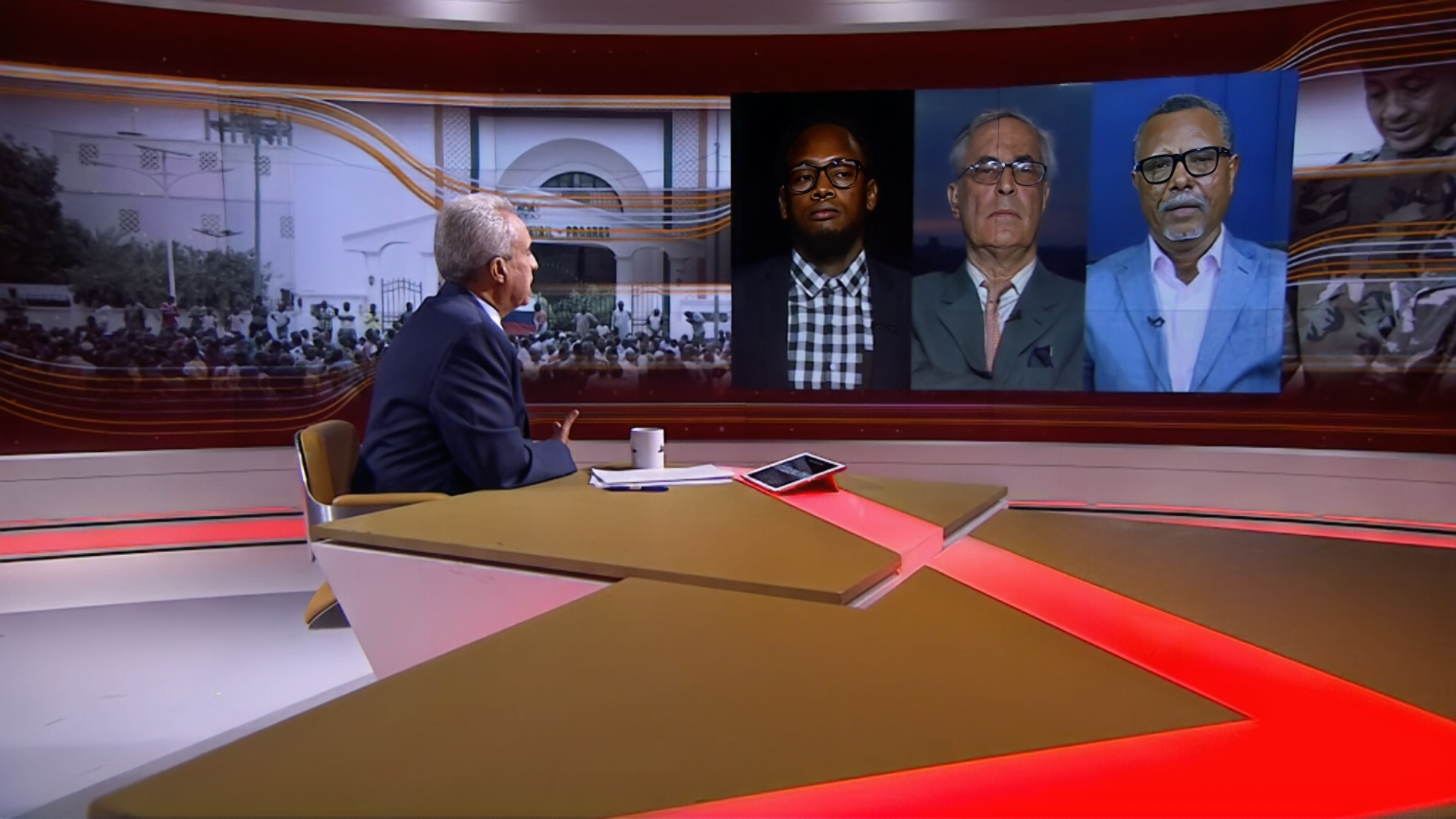Analysts and experts who spoke to the program "Scenarios" did not rule out that the Economic Community of West African States (ECOWAS) will carry out its threat of military intervention in Niger against the council that turned against President Mohamed Bazoum, after the expiration of its deadline - which it set before the coup leaders - next Saturday.
But they agreed that it would be one of the scenarios with bad repercussions on the country, as it would plunge it into a spiral of turmoil and deterioration, while they differed in the goal of this intervention, if implemented, between restoring President Bazoum to power, or simply removing power from the military and paving the way for the formation of a new government.
The military coup in Niger is the fifth since independence from France in 1960, and came in the context of a new wave of coups and counter-coups witnessed by the countries of the Sahel region in the past two years alone.
Divided public opinion
In the episode (2023/8/3) of the program "Scenarios", the Nigerian academic and researcher specialized in African Sahel affairs, Dr. Idris Ayat, explained that public opinion in Niger is still divided between two categories, one of which believes that economic pressures can be tolerated in light of the state's treatment of most of the old barter methods.
On the other hand, the second category, represented by the political elite, sees the impossibility of Niger to bear what other African countries have endured coups because of their heavy dependence on foreign aid, the cessation of which will lead to tolerable pressure for some time, but its continuation will lead to the formation of an internal front against the military council, which is what the ECOWAS group is betting on.
Idris pointed out that among the expected paths to deal with the coup in Mali is that the pressure of intensive economic sanctions will lead to a coup against the coup, which assumes the presence of a party in the army that does not really support the leadership of the coup, which Idris does not see as identical to the reality on the ground in light of the exposure of everyone who participated in it to charges of treason if it fails.
The Nigerian academic believes that the path that the military in Niger is betting on is that Western powers and the ECOWAS group will be forced to negotiate with the coup plotters if they withstand the sanctions, fearing for their interests, which the length of the current stage will be further affected.
In any case, Idris expects that the scenario that will govern the scene in Niger will be bad in light of the arrogance of the military and the insistence of ECOWAS to reject the coup, explaining that one of those scenarios contained is the military intervention, which will have dire repercussions on the whole region, and if it occurs, it will aim to remove the military, but will not succeed in restoring Bazoum to power.
Not excluded
According to Al Jazeera's correspondent, a segment of citizens do not rule out that ECOWAS will intervene militarily, but they are skeptical that it will achieve its goals compared to previous experiences in which it did not succeed in reinstating presidents after the coup against them.
Sahel-Saharan security researcher Mohamed Abdallah Taleb Abedi expects the sanctions on Niger to have a significant impact on the future of the crisis, as aid from France, Germany, the United States and the European Union accounts for 60% of the budget, especially in the remaining months of the year.
But he pointed out in his speech to the program "Scenarios" that this may not be enough in the short term to force the military to retreat from the coup in light of the support they receive from the leaders of neighboring countries that witnessed previous coups, but in light of the fact that this support is only moral, its impact will not last.
Abedi believes that military intervention will have negative consequences for the region, especially with regard to the issue of illegal immigration, and that the absence of military intervention and the continuation of military rule have bad repercussions as well, as it will sow instability and increase the vulnerability of other countries in West Africa to similar changes.
The Sahel-Saharan security researcher said that unity among the components of the army is not strong, as there are those who still adhere to the legitimacy of President Bazoum, and if military intervention occurs, this will increase the possibility of differences between the military that contribute to the success of this intervention.
More effective
Nicolas Norman, a former French ambassador to several African countries including Mali, said sanctions have proven effective several times in other African countries and are expected to be more effective in Niger because of its heavy dependence on foreign aid.
He pointed out in his speech to the program "Scenarios" that these sanctions will be harsher than any previous sanctions, with serious threats of military intervention, which is expected with him in the end of the military to leave power, stressing that if it does not happen, this will lead to instability will not be beneficial to any of the parties to the scene.
Norman believes that economic pressures, in addition to the pressure of exacerbating the threat of jihadists, would push for the failure of the coup, stressing that military intervention if it occurs will certainly lead to the return of Bazoum to power as it came through a democratic process and through elections.

